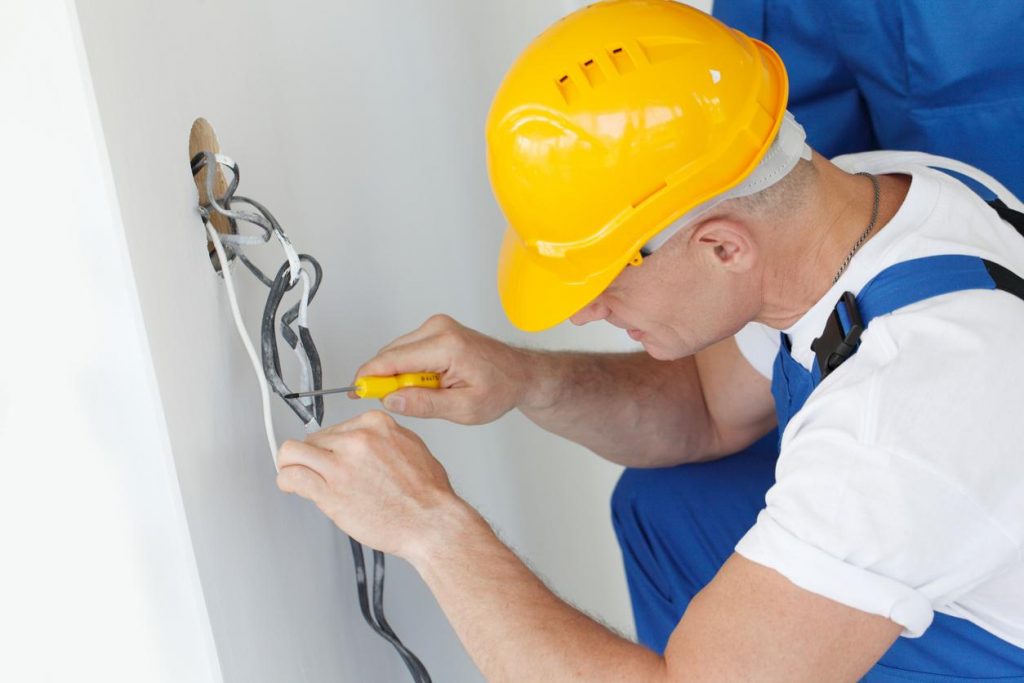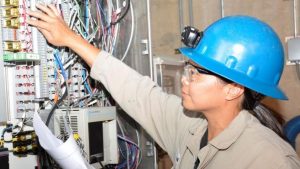When to Upgrade Your Electrical Panel: Advice from a Kenner Electrician

Your home’s electrical panel is the backbone of your electrical system, distributing power to all outlets, lights, and appliances. Over time, as technology advances and power demands increase, older electrical panels may struggle to keep up. Upgrading your panel ensures safety, efficiency, and the ability to support modern electrical needs.
If you’re unsure whether your home needs an upgrade, consulting a Kenner electrician can help assess your system and determine if an upgrade is necessary. Outdated panels can pose serious risks, including electrical fires and system failures, so addressing potential issues early is essential.
Signs That You Need an Electrical Panel Upgrade
1. Frequent Circuit Breaker Trips
Circuit breakers are designed to trip when they detect an overload, preventing electrical fires. If your breakers frequently trip when running appliances, this indicates that your panel may be struggling to handle your household’s electrical load. Upgrading to a panel with higher capacity can prevent these disruptions.
2. Your Home Still Uses a Fuse Box
Older homes may have fuse boxes instead of circuit breakers. While fuses can still provide protection, they are outdated and less convenient than modern breaker panels. If your home has a fuse box, upgrading to a circuit breaker panel is highly recommended for improved safety and functionality.
3. Dimming or Flickering Lights
If your lights dim or flicker when you turn on an appliance, it could mean your electrical panel is not supplying adequate power. This issue often occurs in homes with older panels that cannot support modern power demands. Upgrading your panel ensures a steady flow of electricity, preventing fluctuations that can damage electronics and appliances.
4. Overheating Electrical Panel or Burning Smell
A panel that feels hot to the touch or emits a burning smell is a serious warning sign. This could indicate loose connections, faulty wiring, or an overloaded panel—issues that increase the risk of electrical fires. If you notice these signs, call an electrician immediately to assess the situation and recommend an upgrade.
5. Your Home Has Outdated Wiring
If your home was built several decades ago and still has original wiring, your electrical panel may not be compatible with modern wiring standards. Older panels may lack grounding or use aluminum wiring, both of which can be hazardous. Upgrading the panel along with necessary rewiring can improve safety and efficiency.
6. Adding New Appliances or Home Additions
If you are planning to install high-powered appliances, such as an electric vehicle charger, HVAC system, or modern kitchen appliances, your existing panel may not have the capacity to handle the increased load. Additionally, home expansions or renovations often require additional circuits. An upgraded panel ensures your system can accommodate these changes without overloading.
7. Your Panel is More Than 25 Years Old
Most electrical panels are designed to last between 25 and 40 years. However, with advancements in technology and increasing energy demands, panels older than 25 years may no longer be sufficient. If your panel is aging, an inspection by a professional can determine if it’s time for an upgrade.
Benefits of Upgrading Your Electrical Panel
Enhanced Safety
A new panel reduces the risk of electrical fires caused by overloaded circuits, faulty wiring, and outdated components. Modern panels come with improved safety features that provide better protection against electrical hazards.
Increased Home Value
An updated electrical panel can increase your home’s market value. Potential buyers look for homes with modern electrical systems that can safely accommodate their needs, making an upgraded panel an attractive selling point.
Improved Energy Efficiency
Newer panels operate more efficiently, reducing wasted electricity and helping to lower energy bills. Modern circuit breakers also provide better control over power distribution, preventing unnecessary energy consumption.
Capability to Support Smart Home Upgrades
With the rise of smart home technology, including automated lighting, security systems, and energy-efficient appliances, a modern electrical panel is essential. Upgrading ensures your home can handle the power demands of these new technologies without risk of overload.
Prevention of Costly Repairs
Delaying an upgrade can lead to frequent electrical issues, requiring costly repairs over time. By proactively upgrading your panel, you can avoid unexpected breakdowns and the expenses that come with emergency fixes.
Choosing the Right Electrical Panel Upgrade
When upgrading your electrical panel, consider the following factors:
- Panel Capacity: Most modern homes require at least 200 amps to support everyday energy needs. If your home currently has a 100-amp panel, an upgrade to 200 amps may be necessary.
- Future Needs: If you plan to install additional appliances or expand your home, ensure your new panel can handle future increases in electrical demand.
- Surge Protection: A new panel can include built-in surge protection, safeguarding your electronics from power surges and fluctuations.
- Compliance with Local Codes: Electrical upgrades must meet local building codes and safety regulations. A licensed electrician ensures compliance with these requirements.
When to Call a Professional Electrician
Upgrading an electrical panel is a complex task that should only be handled by a qualified electrician. Attempting a DIY upgrade can be dangerous and may not meet safety standards. A licensed Kenner electrician can inspect your system, recommend the right panel size, and complete the installation safely and efficiently.
If you notice any of the warning signs mentioned above or are considering a home renovation, it’s best to schedule an inspection. An expert electrician can determine whether your panel needs an upgrade and guide you through the process to ensure your home’s electrical system is up to date.
Conclusion
An outdated electrical panel can pose serious risks and limit your home’s ability to support modern energy demands. Whether your panel is showing signs of wear, struggling with increased power needs, or simply outdated, upgrading to a new system enhances safety, efficiency, and reliability. Consulting a professional electrician ensures the job is done correctly, keeping your home and family safe from electrical hazards.







